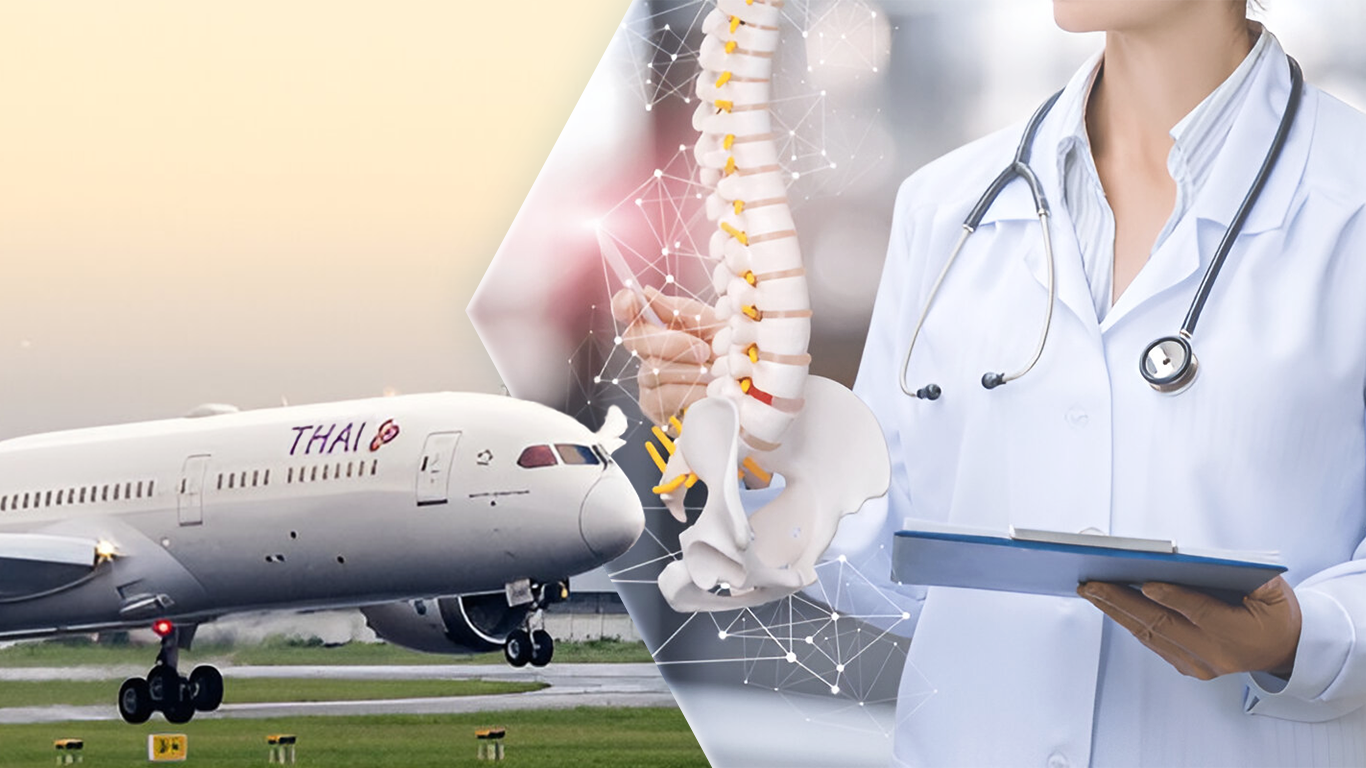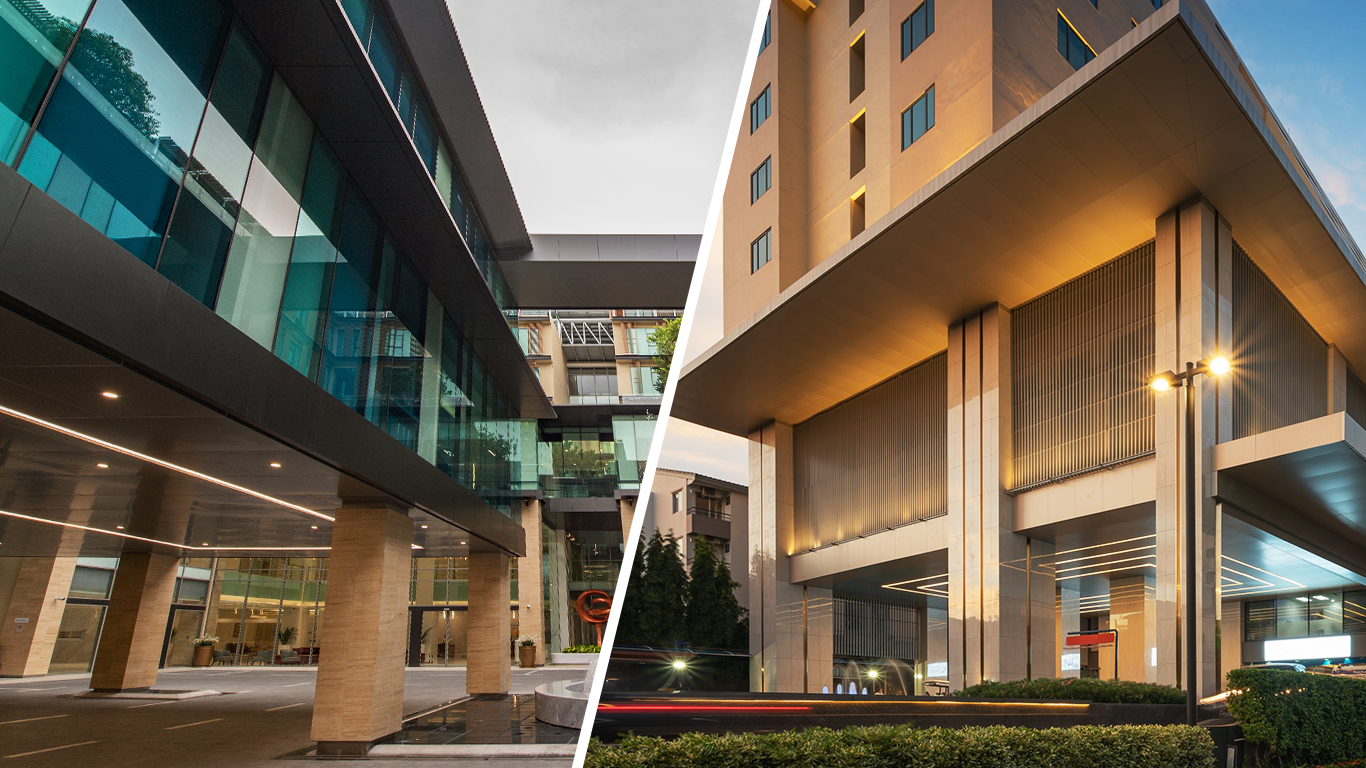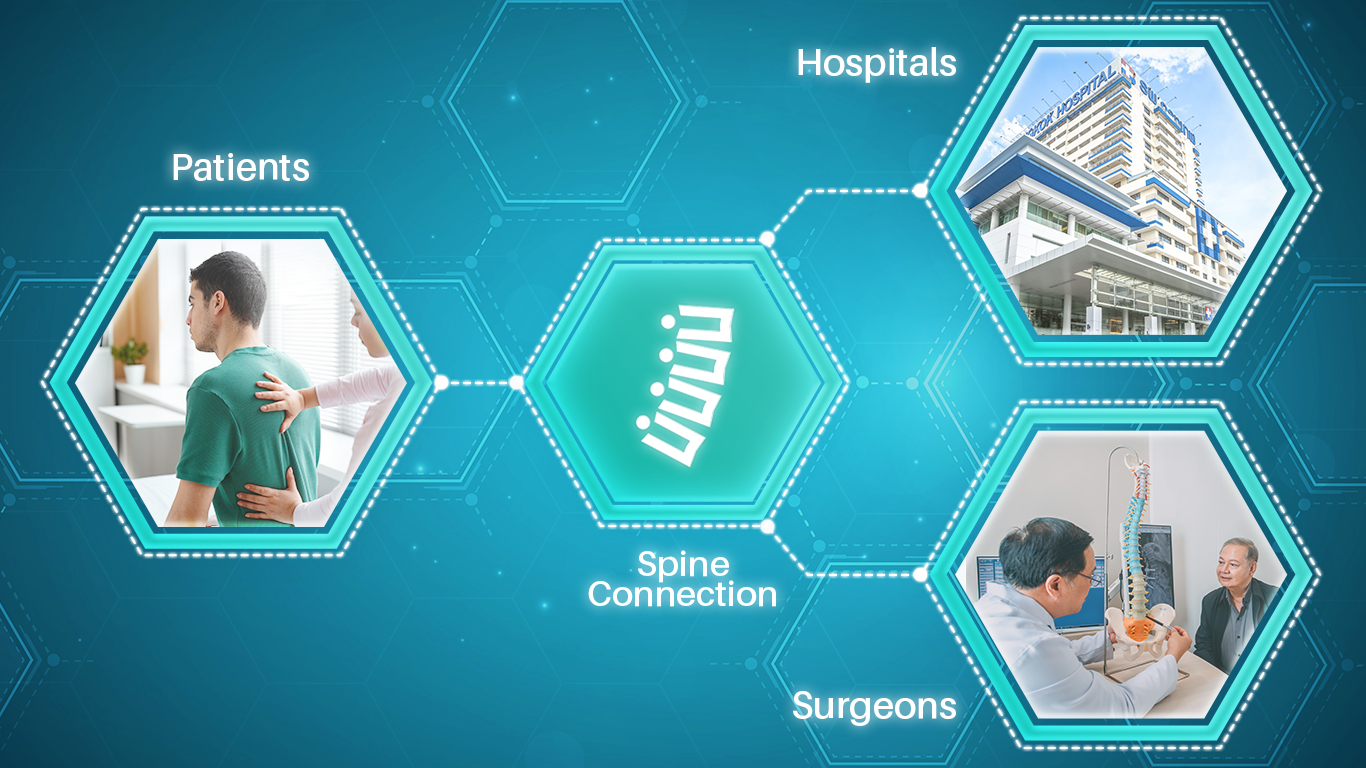
After ten years helping patients plan medical treatment abroad, I’ve seen the same motivations come up repeatedly: long waiting lists at home, high out-of-pocket costs, insufficient insurance, and limited access to newer techniques.
That’s why many patients now look to Thailand. More than 4 million medical travellers visit each year, and for spine surgery the savings are often around 30-50% percent compared with Western countries. Crucially, this does not mean compromising on surgeon experience, technology, or the overall patient experience. The goal is safe and advanced timely care, with clear communication and predictable costs.

Choosing a hospital
Thailand has both public hospitals for local citizens and very large private hospital groups that were built with international patients in mind. Walk into one of the major private centres and it feels like a modern hotel, but behind the welcome is the same or higher levels of imaging, operating rooms, and infection control that you would expect from leading Western hospitals.
There’s an important distinction I make with every patient:
“There is a distinct difference between having spine surgery at a Thailand hospital, and visiting a Thailand spine surgery hospital.”
Some hospitals offer spine procedures among many other services, with surgeons visiting from other hospitals to perform the surgery. Others have a dedicated Spine Center with a resident team, established protocols, with highly experienced surgeons and the right equipment available every day. This distinction is not to be overlooked.
Hospitals that routinely care for international spine patients include Bangkok International Hospital, home to the Spine Academy, and Vejthani International Hospital, referred to as the “King of Bones.” Both provide complete in-house diagnostics such as MRI, 3D Bone Scan, CT, and X-rays, along with Neurology Departments, so your surgeon can plan accurately without sending you across town.
In the operating room you’ll see advanced navigation like O-ARM guidance for precise access around delicate areas, together with intra-operative neuromonitoring to protect nerves in real time. These tools directly support safer surgery and better outcomes.
Recovery spaces are private and comfortable, with reliable Wi-Fi and large TVs so family can stay connected. Nursing teams are proud, dedicated, and offer caring Thai service with a smile – for which the country is known.
Post-op rehabilitation is just as important as having a successful surgery. You’ll start gentle mobility with physiotherapists on the ward, then progress to a dedicated rehab floor for gait training, core stability, and posture work. Vejthani International Hospital has the widest range of robot assisted rehab devices in Thailand, and Bangkok International Hospital has an entire building dedicated to Rehabilitation. The goal is to fast-track your recovery, and speed up your confidence so you can return to normal life as soon as possible.

Choosing a surgeon
Choosing the right surgeon is the single most important patient decision. Thai spine surgeons in the top centres have all completed international fellowships in countries like the United States, Europe, Japan, or Korea, which broadens their technique and keeps them current. They use the same globally approved implant systems and navigation you would see in major Western hospitals.
Good judgment starts with matching the operation to the problem. Decompression procedures such as microdiscectomy, laminotomy, foraminotomy, and endoscopic approaches relieve pressure on nerves in cases like herniated discs or spinal stenosis.
Stabilization procedures such as ACDF in the neck and OLIF, TLIF, or ALIF in the lower back restore alignment and stability when discs or joints have failed. Scoliosis and other deformities call for surgeons who do complex correction routinely, on both adults and children with still developing bodies. An entire career is not enough time for a Spine Surgeon to become an expert in every type of surgery, so it’s wise to choose a surgeon who performs your required procedure often, at least hundreds of times before, and teaches it to others. For example, Dr. Tayard Buranakarl from Bangkok International Hospital is regarded as an expert at OLIF Surgery, and runs training workshops teaching other surgeons around the Asia-Pacific region.
After your online or in-person evaluation, you can expect a clear recommendation based on your symptoms, imaging, and anatomy. It can be tempting to request a different technique you’ve read about online, however asking a surgeon to change to a method they do not routinely perform can increase risk. If you want another perspective, seek a second opinion rather than trying to steer the surgeon away from their initial recommended approach.

Bringing family and support partners
Most of Thailand’s leading private hospitals are set up for family and support partners. Standard private rooms let a partner stay in the same room on a foldout sofa or rollaway bed, and many wards offer suite rooms with a separate bedroom and living area. This is more like a luxury hotel experience, and if have a preference, we can request it during booking.
At Bangkok Hospital (Bangkok International Hospital campus), the indoor Bangkok Plaza arcade has a range of restaurants plus a minimart and banking services, so your support partners can eat a variety of tasty cuisines, and you can also top up your hospital food, with your doctor’s permission. Vejthani International Hospital is similarly convenient, with well-known cafés such as Starbucks, Subway and Au Bon Pain on the ground floor and a café upstairs for hot meals.
When you’re discharged from hospital and awaiting your final check-up, you will likely be ready for a gentle outing. ICONSIAM and Siam Paragon are easy, air-conditioned mall choices with lots of dining and places to sit. For sunset skyline views with minimal walking, you can reserve a rooftop restaurant such as Vertigo & Moon Bar, Octave, or Mahanakhon SkyBar.
In the days after surgery, keep outings short, stay close to the hospital, and follow your surgeon’s guidance on mobility.

Using a Medical Travel Facilitator – Spine Connection
Working with a specialised facilitator like Spine Connection is incredibly important and does not add cost to your treatment. The role of Spine Connection is to be an extra member of your team, one with long-standing and trusted relationships with the hospitals and surgeons, who helps match your case to the right specialist while keeping every step clear.
We handle correspondence, translate medical plans into everyday language, coordinate schedules and quotes, and make sure the details for flights, airport transfers, accommodation guidance and rehab planning are joined up.
After you return home, if questions or problems arise, we reconnect you with your surgical team for timely review and help your local GP or physiotherapist stay aligned with the plan.
The lesson from a decade of patient advocacy is simple. Clear, timely communication turns any uncertainty into a plan, and keeps the surgery and recovery journey on track for the best possible experience and outcome.
Please Contact Us today if you are interested in advanced spine surgery in Thailand, and we will assist your on your journey.


